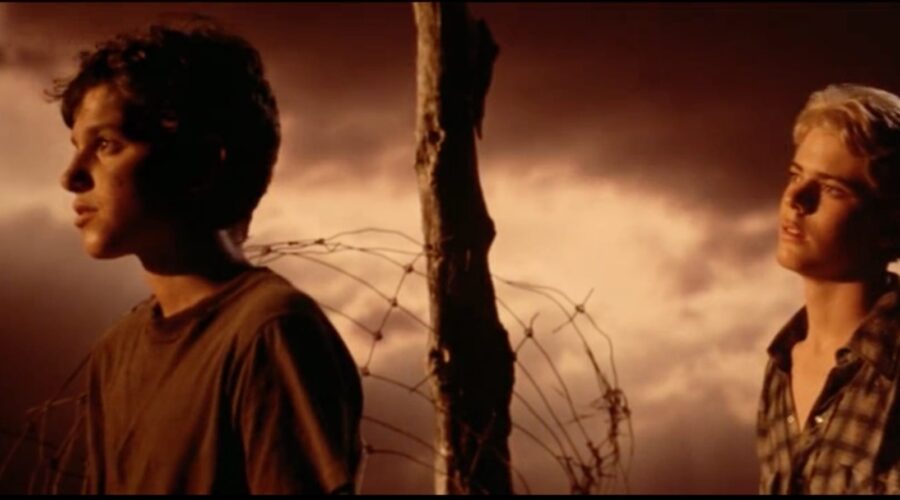40 years is half a lifetime. For some, 40 years is their lifetime. Others never get to see 40 years. Was it really 40 years ago when Francis Ford Coppola, director of The Godfather and Apocalypse Now released The Outsiders, a small coming-of-age movie about working-class teenagers growing up in the 1950s? That Stevie Wonder title track still soars from the screen, filling our yearning hearts with hope and joy, but with a dreadful undercurrent of sorrow and despair, Stevie sings, Seize upon that moment long ago… and we’re transported back to our youth… So young and carefree, again you will see, that place in time… so gold.
This is small coming-of-age movie crafted by masters.
Coppola made the film on the recommendation of Jo Ellen Misakian, a librarian at Lone Star Elementary School in Fresno, and a petition from her students. The Outsiders by S.E. Hinton was their favourite novel and Hinton had written it at the age of 16 based on the two rival gangs at her school in Oklahoma. The Outsiders are a teenage gang of Greasers from the wrong side of the tracks. They battle with the affluent Socs in organised rumbles, or fight them with knives and broken bottles near the drive-in.
The story centres on the Curtis brothers, recently orphaned so the eldest brother Darry must raise his two younger brothers Sodapop and Ponyboy with the help of their close-knit group of friends. 40 years ago, Coppola ushered in the Brat Pack to take on the roles of these characters, C. Thomas Howell, Ralph Macchio, Matt Dillon, Patrick Swayze, Emilio Estevez, Rob Lowe, Tom Cruise, and the mesmerising Diane Lane make up the retrospectively all-star cast. These names would rise and fall with the with the whims and tastes of Hollywood for the next four decades with Swayze sadly dying from cancer in 2009.
Coppola’s movie was Generation X’s equivalent of The Magnificent Seven or The Dirty Dozen with up-and-coming actors trying to blow each other off the screen to get noticed. Whether it is Cruise with his real teeth, backflipping off beat-up cars and smearing chocolate cake around his face, Estevez constantly boozed and acting the fool, or Swayze stoic and athletic, exuding authority, The Outsiders is a beautifully elegiac piece of art, the magic hour of youth (both theirs and ours) eternally encapsulated on celluloid. A dream of youth walking the fields of Elysium.
When you are young, Matt Dillon as Dally has the Brando/Dean acting chops, all angst and brilliance, an unrestrained tempest that turbo charges the movie, brooding and handsome. 40 years on, Dillon is still tragic as the vassal of doomed youth, crawling dazed over the asphalt, but what stands out are the tender, quiet performances of Howell as Ponyboy and Macchio as Johnny Cade. Everyone may be carrying a switch blade, but The Outsiders is a study of children left to raise themselves in the shadow of Americana, the shadow of the 1950s economic miracle, and the shadow of nuclear war.
In a world where we think toxic masculinity curses every past feature film, The Outsiders still surprises. These are young men who are not afraid to cry, comfort one another, cuddle brothers who are afraid to sleep, read to one another and contemplate poetry, talk about love. At the same time, they can be jerks to women, drive fast cars, talk tough, and fight dirty. In short, they are human beings; fallible but steering a course without adults. Coppola’s camera loves them, enshrines them in a golden light. These are people, relatable, attainable to teenagers, not superheroes with spornosexual musculature they will never measure up to. And walk into the clutches of Andrew Tate and his ilk.
More than that The Outsiders is transcendent, film as time machine, a film that has the same function as its key theme, Johnny tells Ponyboy to, “Stay gold” never lose the courage of his convictions, never lose his youthful eye for sunsets, never drift into the cynical despair that did for Dally. Johnny Cade died at 16, Dally Winston died at 17. The Outsiders at 40 holds them forever young, the sheen of youth, of brotherhood always there should you ever forget Johnny’s words.
And then Stevie sings again… life is but a twinkling of an eye, yet filled with sorrow and compassion, though not imagined, all things that happen, will age too old, though gold.

